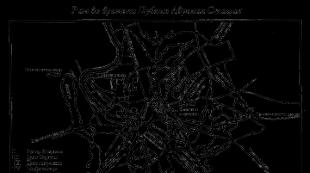Federal law on pension insurance. Compulsory pension insurance system
Currently, insurance in Russia is developing dynamically, annually introducing itself into new areas of activity of citizens. In particular, the development of insurance is promoted by Russian legislation, which provides for certain types of compulsory insurance for citizens. One of these areas is pension insurance, which is included in the list of mandatory areas.
General provisions
This law came into force at the end of 2001, and since then it has been in force to this day, subject to some amendments and changes.
The order and control over the organization of compulsory insurance is assigned to state federal bodies.
Participants of legal relations
Article 4 of this law defines 3 types of pension insurance participants. These include:
- policyholders;
- insurers;
- insured persons.
The insurer is a state body, with all its branches throughout Russia. This is the Pension Fund. And the state bears subsidiary responsibility for its obligations. The activities of the FIU are regulated by this law.
Insurers also include non-state pension funds, which act as accumulators of insurance premiums on individual deposits of citizens. And also in the future they are obliged to make payments in the event of insured events.
As policyholders are those persons who make insurance contributions for the insured persons. These may include:
- physical citizens;
- individual entrepreneurs;
- organizations;
- people engaged in private practice (notaries, lawyers).
If a citizen belongs to several categories at the same time, then he must pay insurance premiums for each category.
The insured persons are directly those citizens who will receive income compensation in established cases of disability. These may include Russian citizens, as well as other persons, regardless of their citizenship, staying on the territory of Russia on legal grounds.
They also include the following:
- employed persons;
- persons working under civil law contracts;
- the authors;
- individual entrepreneurs and citizens engaged in private practice;
- members of peasant farms;
- clergymen;
- persons working outside the Russian Federation, but making regular contributions to the FIU;
- peoples of the Far North;
- some other persons established by law.
These categories of people are insured against the occurrence of an insured risk. Which is understood as the loss of earnings or other income in certain cases. Insured events are the following circumstances:
- loss of a breadwinner;
- reaching the established retirement age;
- getting a disability.
In the event of these circumstances, the insured persons can count on the following insurance coverage:
- Lump sum pension.
- Urgent payment of pension.
- Monthly receipt of the funded part of the pension.
- Insurance pension for old age, disability or loss of a breadwinner.
- Fixed payment to the insurance part of the pension provision.
- Benefit for the funeral of a deceased pensioner.
- Payment of pension savings to the successors of the deceased pensioner.
All these payments are made at the expense of the PFR, as well as other non-state pension funds. To keep records of policyholders, the PFR registers and deregisters them on the basis of Article 11 of this Law.
The following insurers are subject to mandatory registration:
- All employers.
- Anyone in private practice.
- Organizations that have bank accounts for charging citizens with certain payments and rewards.
After the registration of the insured, he is issued an appropriate document. After deregistration, this document is returned. And all changes about entering new information into the accounting system are reflected in the general Internet.
Rights and obligations of subjects
As in any insurance relationship, each participant has his own rights and obligations. According to Article 13 of this Law, the insurer has the right to:
- Verify the documents of insurers to verify the correctness of the calculations on the amount of insurance premiums.
- Require policyholders to eliminate violations identified during the audit.
- Request and receive information from the tax authorities on the income of insured persons.
- Manage the funds in the budget of the PFR and NPF.
- Represent the interests of the insured persons and act in their interests.
- Exchange information with other government agencies.
- To refund paid insurance premiums to policyholders if it is impossible to establish for which insured person they were paid.
- Receive guarantee compensation from the Agency when investing pension savings.
This article also indicates the obligations of the insurer in relation to other participants in these legal relations:
- Control the information provided by the insurers.
- Produce a reasonable explanation of the established insurance rates for contributions.
- Assign and timely pay the due payments to insured persons.
- Control the list of documents that policyholders must submit to confirm the transmitted information.
- Prepare a draft PFR budget and monitor its implementation throughout the year.
- Inform all participants in legal relations, as well as other interested state bodies about their financial condition.
- Use funds only for their intended purpose and keep records of them.
- Perform registration and deregistration of insurers.
- Keep records of insurance premiums and maintain the state bank of insurers.
- Provide a regime for the accumulation of a special part of insurance premiums.
- To timely record the income from investing the funds of the special part of the contributions.
- Conduct free consultations for all participants in legal relations.
- Determine the amount of insurance premiums and keep records of them.
- Pay guarantee fees and provide information to the Agency on the number of insured persons, as well as on the amount of their obligations to them.
The same article establishes the rights of policyholders:
- Participate in the implementation of pension insurance.
- Receive the necessary information from the FIU for free.
- Protect your interests in court.
- Pay contributions to the funded part of the pension.
The obligations of the insurer are the following:
- Register in the system in the prescribed manner.
- Pay in full and on time.
- Submit the necessary documents to the FIU within the specified time limits.
- Comply with the requirements and instructions of the FIU.
- Ensure the implementation of the rights of persons in whose favor insurance is provided.
The insured persons themselves also have certain rights and obligations. The rights include the following:
- The right to participate in this system of legal relations through policyholders and other representatives.
- Receive information from the FIU and the employer about the deductions made.
- Timely and in full to receive the required insurance compensation in the event of an insured event.
- Pay additional funds to form the funded part of the pension.
The obligations of these participants in insurance relations include the following:
- Report to the insurer and the insured all the information that affects the formation and appointment of the due payments.
- Follow the procedure for recalculation and assignment of payments.
- Provide reliable documents confirming the facts on the basis of which the insured person is entitled to receive payment.
Thus, these rights and obligations of all participants in the insurance process organize the procedure for compulsory pension insurance.
Financial system
To fulfill the obligations of pension insurance, Article 16 of this law indicates the impossibility of withdrawing the PFR budget by other federal bodies. This budget is not included in other budgets and is wholly owned by the PFR.
To form this budget, a certain standard of funds is established, which must be in the FIU. This standard is set annually by the government of the Russian Federation.
In the PFR budget, a separate account is made of the funded part of the pension of insured persons on their personal accounts. The funds are on the accounts of the Bank of Russia created for the operations required by the PFR.
Read how to check retirement savings.
The budget is formed through the following:
- contributions from insurers;
- funds from the federal budget;
- fines and penalties imposed on violators;
- income from temporary investment;
- voluntary contributions of citizens for the accumulation of pensions;
- reserve funds;
- other permitted sources of income.
The procedure for calculating and organizing interbudgetary transfers that form this budget is established by this law in Article 17. Spending funds from the budget is possible only for the intended purpose:
- Established benefits to insured persons.
- Delivery of payments to the house and through intermediaries.
- Financial and material support for the activities of all branches of the PFR.
- Payment of guarantee fees.
- Other Permitted Purposes.
All expenditures must be planned in the draft budget for the next year and executed in accordance with this draft. To ensure a financially stable pension system, the PFR forms a certain reserve of funds that can be used under strictly defined circumstances. To calculate funded payments to insured persons, it is used. Read about the amount of IPC.
Payment of insurance premiums
The amount of insurance premiums is determined on the basis of the tariffs established by the Pension Fund. The insured persons can choose whether they will deduct 6% of their contributions to the funded part of the pension. In addition, they will be able to independently choose a pension fund that forms the funded part of the pension. Find out when you can get the funded part
Of the 26% deducted, 10% is always allocated to the solidarity part of the pension, from which payments are currently made to other insured persons. And the remaining 16% of people can choose where they will be sent. You can send all 16% to the individual part of the pension, or leave 10% for the individual, and 6% for the funded part.
The accrual of contributions is carried out by sending a single settlement document.
And the maximum contribution cannot exceed eight times the minimum wage.
Read about the disability insurance pension.
Video
Final and transitional provisions
In the event of disputes between insurance participants, a written application must be submitted for consideration by the FIU. If it is impossible to resolve the situation, the participants can apply to the court. For violation of the obligations of each of the parties to these legal relations, liability is provided.
The insured person has the right to refuse to receive the payments due to him -.
For different insurers, a different taxation system may be provided, on the basis of which deductions to the PFR will be different. All tariffs are specified in detail in article 33 of this law.
On the basis of this legislative act, signed by the President of Russia, the system of compulsory pension insurance operates in the Russian Federation. We recommend that you read about individual pension capital.
Federal Law No. 167-FZ defines compulsory pension insurance (hereinafter briefly referred to as OPS), which is a system that helps provide pensioners with benefits. The process of carrying out this procedure is regulated by the Federal Law "On Pension Insurance" of the Russian Federation. There is also in the Russian Federation, but this is different.
- first chapter, as usual, introduces the general provisions of the bill;
- second chapter tell about the participants of compulsory pension insurance;
- third— on the rights, duties and existing responsibilities of people falling under this Federal Law;
- fourth— on the financial system of the CSO;
- fifth— on mandatory pension insurance (CB) contributions;
- sixth— about the final provisions.
The last amendments to the law "On Pension Insurance" were made last year on December 19, 2016. All changes and additions to the new document have already entered into force since the beginning of January 2017. However, it should also be mentioned that there is already a new edition of June 2017. , which has not yet entered into force - this will happen from the first day of January 2018. In it, paragraph 7 of article 33 of the article was subject to change.
Highlights of FZ-167
This all-Russian document "On Pension Insurance" is the legal basis for organizational, economic operations in the field, in addition, this legal act was established by each subject of legal relations, endowed them with rights and direct duties.
By law, all residents of the Russian Federation are insured citizens. All individuals have their own ILS, where pension insurance contributions are credited. Making contributions becomes the responsibility of the head, whose employee is on the staff. So, these contributions begin to form the pensions received by the pensioner in the future.
The participants of compulsory pension insurance are:
- PFR (insurer) - gives state benefits and pensions when an insured event occurs;
- insurers (individual entrepreneurs, individuals, organizations) - pay insurance premiums to the PFR;
- insured persons (employees, individual entrepreneurs, etc.).
The PF budget is formed from:
- first of all, insurance premiums;
- money from the state budget;
- amounts of financial sanctions imposed;
- contributions made on a voluntary basis, etc.
Insurance premiums for mandatory pension insurance are made at a rate of 22%. The rate consists of 2 parts: joint and individual.
Here are the main points about pension insurance, which are described in FZ-167.
Last changes
The changes affected the law "On Compulsory Pension Insurance" in December 2016 and entered into force from the beginning of the new year.
Let's take a closer look at a few articles:
Article 7
This article talks about the concept of "insured persons". This year, innovations have not affected this situation. The latest innovations, which came into force in January 2015, were made in December 2014. Insured persons, among whom may be citizens of the Russian Federation, non-residents, permanently or temporarily residing / staying in the Russian Federation, are people who are subject to mandatory pension insurance. These include:
- employees with whom labor relations are supported by an employment contract;
- self-employed part of the population - individual entrepreneurs, lawyers, notaries who are engaged in private practice;
- farm representatives;
- persons working abroad while paying insurance premiums;
- representatives of family communities of the peoples of the Far East of the Russian Federation, Siberia, the North, who are engaged in traditional farming;
- spiritual person;
- etc.
Article 13
Art. 13 FZ-167 "On Compulsory Pension Insurance", in contrast to the 7th article, was transformed from the beginning of 2017. This article talks about the rights, powers and responsibilities that insurers bear. Changes began immediately from the 1st point. The article states that the insurer has the right:
- check documents from policyholders that relate to the allocation and payment of compulsory pension insurance (OPS), taking into account individually data on all insured persons. During inspections, require additional documents, certificates and information from insurers;
- point out to managers and ordinary citizens who independently pay payments for violations of the Federal Law;
- receive information from the relevant authorities about taxpayers;
- implement budget management of the PF and control its use;
- protect the interests of the insured persons before the policyholders;
- return the contributions made if it is not known for whom they were paid;
- maintaining documentation and exchanging information with government agencies;
- deal with the Agency in order to find out the procedure, amount and term for obtaining compensation under the guarantee, in some cases, and receive.
The 5th paragraph was canceled by the new resolution "On Pension Insurance". The second paragraph talks about responsibilities and there was also a small change. The insurer is obliged:
- control the veracity of the data provided for record keeping;
- prepare an explanation of the rates of CB tariffs;
- determine and pay funded and insurance pensions and make other payments;
- control the validity of the concept of acts for assigning the amounts of compulsory pension insurance;
- to think over the budget plan of the Pension Fund;
- keep all interested parties informed about their financial condition and take measures to strengthen their financial stability;
- etc.
Article 15
Article 15 was last amended at the beginning of 2015. This article, in turn, tells about the rights, duties and responsibilities of the insured persons. Specifically, paragraphs 6, 7, 9 of paragraph 1, which tells about the rights of these persons, were changed. They have the right:
- take part in the improvement of compulsory pension insurance;
- freely receive information from the authorities about the accrued SV and control their transfer to the Pension Fund;
- receive the OPS in a timely manner and in full;
- defend their interests, including in court;
- freely receive information from the employer about the calculation and delay of additional insurance contributions to the funded pension (instead of the labor pension, as it was before), control their transfer to the Pension Fund;
- pay additional SF for a funded pension (and not for a funded labor pension);
- for the transfer of funds from pension savings, in the event of a transition from a pension fund to a non-state pension fund, in no less than the total amount of guaranteed funds;
- establish a funded pension (rather than a funded old-age labor pension) and/or a fixed-term pension payment not less than the total amount of guaranteed money.
Obligations of the insured persons:
- provide the insurer with reliable documents, according to which compulsory pension insurance will be assigned and paid;
- notify the insurer of any changes that may affect the payment of SV;
- adhere to the conditions accompanying the appointment and payment of insurance premiums.
Download FZ-167 "On Compulsory Pension Insurance"
FZ-167 "On Compulsory Pension Insurance" in the latest edition can be downloaded. The draft law will be of interest to pensioners, ordinary workers who have not yet retired, managers, so-called insurers and policyholders, as well as insured persons.
A new edition of pension insurance is waiting for citizens at the beginning of 2018.
Creation of sources of financing for pensioners (pension insurance) is the basis of the pension system in different countries of the world. There are two types of pension insurance:
- Compulsory pension insurance;
- Voluntary.
To understand the types of insurance and understand how this type of activity is regulated, a
What is a law?
Basic provisions of Federal Law 167
Summary of Federal Law No. 167:
- Chapter 1 - describes the general provisions of the Federal Law;
- Chapter 2 - lists the participants in legal relations for compulsory pension insurance;
- Chapter 3 - describes the rights and obligations of subjects of compulsory pension insurance;
- Chapter 4 - reveals the concept of the financial system of compulsory pension insurance;
- Chapter 5 - lists the methods of payment of insurance premiums;
- Chapter 6 - describes the final as well as transitional provisions.
What changes have been made?
As mentioned above, the last amendments to the Federal Law were made on December 28, 2017. The changes affected the following articles:
P 4 article 33
Information about organizations that carry out technical and innovative activities was removed from this paragraph.
P 7 article 33
This item has been revised. It says that since 2014, those who contribute money to the insurance fund to receive a future pension pay 8 percent of their earnings. The amount of contributions is determined by the Pension Fund of the Russian Federation individually based on the general statistics of the amounts received from citizens in the Russian Federation. In 2018, the contribution will be 13 percent. In 2019, the tariff will be 20 percent.
P 17 article 33
Legal entities will have to pay insurance premiums in the amount of 6 percent.
P 2 article 33.1
It says that from 2014 until 2020 (previously 2019), some insurers are subject to a tariff of 22 percent within the set amount and about 10 percent (over the set amount).
P 4 article 33.3
It says that part of the insurance premium goes entirely to finance labor pensions with subsequent indexation of the insured person. However, starting from 2015 until 2020, the accumulation of the insurance pension will be used to ensure the insurance pension of citizens, taking into account indexation. Such contributions to the Pension Fund are mandatory.
Below are the important articles that have not been changed:
Article 4
Article 4 describes who is the subject of compulsory insurance. They are:
- insured persons;
- Insurers;
- Insurer.
Article 8
Article 8 describes the insured event. Based on the law FZ 167, an insured event occurs:
- upon reaching retirement age;
- at the time of the onset of disability;
- with the loss of a breadwinner.
Article 13
Article 13 lists the rights and obligations of the insurer. He has the right:
- Carry out additional checks with policyholders, namely with the appointment of a mandatory insurance premium and its recalculations;
- Require customers to eliminate violations immediately;
- Receive data from taxpayers;
- Manage your own money;
- Represent the interests of the insured persons before the policyholders.
The insurer must:
- Control the correct provision of documents and the correct information that will be required for further personal accounting;
- Prepare justified reasons for which the rate of insurance premiums has been increased;
- Timely assign the correct amount of pension to be received by citizens of the Russian Federation;
- Control the validity of documents;
- Draw up a project based on the PF budget;
- Ensure proper use of funds;
- Take into account the funds that come from compulsory pension insurance;
- Register and de-register citizens who are or were policyholders;
- Ensure proper maintenance of a special personal account;
- Organize consultations to insured persons on issues of pension insurance through their own territorial bodies;
- Determine the amount of insurance premiums that are charged for funded and insurance pensions;
- Register the total amount of insurance payments that were accepted by the Pension Fund of the Russian Federation.
Article 16
Article 16 describes the Budget of the Pension Fund of the Russian Federation.
The budget of the Pension Fund refers to funds that have passed into federal ownership. They are not included in the basis of other budgets, so they cannot be withdrawn. At the time of the creation of the budget for the following year, the working capital norm is established. The budget is approved annually by the Government of the Russian Federation on the basis of federal laws and the Budget Code of the Russian Federation and is consolidated.
The text of the law on compulsory pension insurance
Federal Law No. 167 "On Compulsory Pension Insurance in the Russian Federation" regulates legal relations that are associated with compulsory pension insurance. To analyze the law and its regulations in detail, you need to go to.
Federal Law 167 on compulsory pension insurance, the latest version states that compulsory pension insurance (OPS) is a system with the help of which in Russia they form a financial source for providing Russians with pensions. A state legal act is called upon to establish order in this area - the federal law (FZ) on compulsory pension insurance (in the same way, FZ275 regulates the procedure for “working” with the state defense order: details can be found).
FZ 167 on compulsory pension insurance
This basic document in the sphere has been in force since December 2001, the date when the Duma adopted the document is November of the same year. The latest version of the law (amendment to it) was adopted at the end of 2015 (December). This Russian act is the legal basis for organizational, financial actions in the field, and this legal document also defined each subject of legal relations, endowed them with rights and obligations.
A separate article indicates the rates of stipulated insurance premiums; for persons born in 1967 or later than the indicated date, different rates are set. This Federal Law indicated the billing period, which is equal to a year, also indicates the procedure, the terms for paying all insurance premiums, how they are calculated (for example, tuition payments are calculated in a similar way to avoid financial).
A separate provision of the law defined general concepts in the field, for example, who are the insurer, policyholder, insured persons. According to the document, the main insurer is the Pension Fund of the Russian Federation, but the key persons are the employers of people - the insured persons.
After the adoption of this document, the reform of the industry began; over the years of its operation, the system has changed significantly.
Federal Law 167 on compulsory pension insurance changes 2018 - summary
In mid-December 2015, President Putin signed the Federal Law amending this document, they relate to this particular year, he changed the text of Art. 33. In its new version, it is said that in 2017 the transfer of contributions for the funded pension to finance the insurance pension will continue. Each such contribution must be reflected in the personal account, it is also taken into account to determine the pension coefficient. The last changes were made in July 2017. Also at this time, adjustments were made to the new law on joint-stock companies. Details
The insurance part of the labor pension under 167 FZ
According to this Federal Law, the amount of contributions for compulsory insurance is 22%, of which 6% are a solidarity tariff, serves to ensure fixed payments, the remaining 16% are an individual tariff, of which at least 10% should go to the formation of the insurance part.
Such money is transferred to pension points, fixed on an individual account, their essence is that a person has the right to receive payments on them upon reaching retirement age, which today the legislation has defined as 60 years for men, 55 for women. must also have an insurance record.
Federal Law 167 funded part
If we talk about compulsory pension insurance, pension savings are a set of funds accounted for in an individual personal account (in its special part), formed only at the expense of contributions made for funded financing, which, after receipt, are invested in the economy by organizations admitted to this. It is important to know that for people born before 1967 such a pension is not allowed.
The conditions for receiving this part of the payments are the achievement of the prescribed retirement age, followed by the person's appeal to the insurer to assign such a payment. This money can be taken away in full, and immediately, to set the period during which the funds will be paid, if a person suffers an untimely death, then all this part of the labor pension will go to the heirs.
212 FZ or 167 FZ to consider
These laws are not interchangeable, each of them is responsible for different issues, so FZ 167 defines the foundations of state pension insurance, regulates all kinds of legal relations in the field, establishes the right of every person to a pension. At the same time, Federal Law No. 212 is intended to regulate organizational relations in the Russian Federation for the calculation and payment of various contributions, not only to the Pension Fund, but also to a number of other insurance funds that are not related to labor pensions.
We can say that the legislation needs these documents to regulate various areas of law. Moreover, the laws do not contradict each other, Federal Law No. 167 operates in general in complete harmony with other laws with which it comes into contact, for example, with the law on non-state funds, on bankruptcy, and various tariff documents. The Federal Law is compatible even with a document that is "distant" in meaning, for example, the Water Code or the law on valuation activities.
Contribute to (as amended Federal Law of February 3, 1996 No. 17-FZ) (Bulletin of the Congress of People's Deputies of the RSFSR and the Supreme Council of the RSFSR, 1990, No. 27, Art. 357; Collection of Legislation of the Russian Federation, 1996, No. 6, Art. 492; 2001, No. 33, Art. 3424; 2003, No. 27, Art. 2700; No. 52, art. 5033; 2004, No. 27, art. 2711; 2005, No. 1, art. 45; 2007, No. 31, art. 4011; No. 41, art. .2776; No. 30, article 3739; 2010, No. 31, article 4193; No. 47, article 6028; 2011, No. 7, article 905; No. 27, article 3873; No. 48, article 6730; No. 50, Article 7351; 2012, No. 27, Article 3588; No. 50, Article 6954; No. 53, Article 7605; 2013, No. 11, Article 1076; No. 19, Article 2329; No. 26, Art. 3207; No. 27, article 3438; No. 30, article 4084; No. 51, article 6699; 2014, No. 26, article 3395; No. 52, article 7543; 2015, No. 27, article 3950; No. 29 , Article 4357; 2017, No. 18, Article 2661) the following changes:
A) add part 9.1 of the following content:
"9.1. In cases where the money transfer operator detects transactions that correspond to the signs of a money transfer without the consent of the client, the money transfer operator suspends the use of an electronic means of payment by the client and takes the actions provided for in parts 5.1- Upon receipt from the client of confirmation of the resumption of execution of the instruction specified in clause 2 of part 5.2 of Article 8 of this Federal Law, the money transfer operator is obliged to immediately resume the use of the electronic means of payment by the client. specified in Clause 2, Part 5.2, Article 8 of this Federal Law, the money transfer operator resumes using the electronic payment instrument by the client after two working their days after the day he committed the actions provided for by Part 5.1 of Article 8 of this Federal Law.";
B) add parts 11.1-11.5 of the following content:
"11.1. Upon receipt from a client - a legal entity of a notice specified in paragraph 11 of this Article, after the debiting of funds from the client's bank account, the money transfer operator serving the payer is obliged to immediately send to the money transfer operator serving the recipient of funds, notification of the suspension of the transfer of funds to the bank account of the recipient of funds or an increase in the balance of electronic funds of the recipient of funds (hereinafter referred to as the notification of suspension) in the form and in the manner established by a regulation of the Bank of Russia.
11.2. If a notice of suspension is received from the money transfer operator serving the payer before the funds are credited to the recipient’s bank account or the recipient’s electronic money balance increases, the money transfer operator serving the recipient of funds shall be obliged to suspend for a period of up to five working days from the date of receipt of such notification, the transfer of funds to the bank account of the recipient of funds in the amount of the transfer of funds or an increase in the balance of the electronic funds of the recipient of funds by the amount of the transfer of electronic funds and immediately notify the recipient of funds in the manner prescribed by the agreement concluded with the recipient of funds, on the suspension of the transfer of funds or an increase in the balance of electronic funds and the need to submit documents within the specified period confirming the validity of receiving the transferred funds from funds or electronic money.
11.3. If, within five working days from the day the funds transfer operator serving the recipient of funds performed the actions provided for in paragraph 11.2 of this article, the recipient of the funds submits documents confirming the validity of receiving the transferred funds or electronic money, the money transfer operator, servicing the recipient of funds is obliged to transfer funds to the bank account of the recipient of funds or increase the balance of electronic funds of the recipient of funds.
11.4. If, within five working days from the day the funds transfer operator servicing the recipient of funds performed the actions provided for in paragraph 11.2 of this article, the recipient of the funds fails to submit documents confirming the validity of receiving the transferred funds or electronic money, the money transfer operator, servicing the recipient of funds is obliged to return funds or electronic funds to the money transfer operator serving the payer no later than two business days after the expiration of the specified five-day period. The money transfer operator serving the payer is obliged to credit funds to the payer's bank account or increase the balance of the payer's electronic money by the amount of their return, carried out by the money transfer operator serving the recipient of funds, no later than two days from the date of their receipt.









